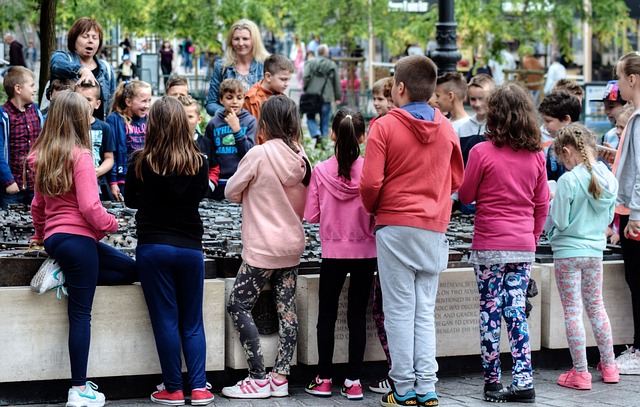Divorce support coaching provides a collaborative alternative to legal processes, focusing on emotional well-being and practical decision-making. Coaches offer tailored guidance on financial planning, co-parenting, emotional processing, and communication strategies to facilitate peaceful separations and minimize conflict. This approach enhances self-awareness, resilience, and open dialogue, ensuring clients navigate complex issues with clarity and efficiency while prioritizing their future goals.
“Divorce can be an emotional rollercoaster, but with professional divorce support coaching, individuals can navigate this challenging period with resilience and clarity. This comprehensive guide explores how divorce coaching services offer vital emotional and logistical divorce support. From mastering communication skills to making informed decisions, these strategies equip clients to handle complex conversations and legal complexities. By the end, you’ll discover how divorce coaching fosters personal growth, enabling individuals to rebuild their lives with confidence.”
- Understanding Divorce Coaching: An Overview
- Emotional Support Strategies for Divorcing Individuals
- Communication Techniques to Navigate Difficult Conversations
- Practical Decision-Making for a Smooth Divorce Process
- Legal and Financial Guidance for Co-Parents
- Building a New Life Post-Divorce: Personal Growth
Understanding Divorce Coaching: An Overview

Divorce coaching is a growing field offering specialized support to individuals and families facing divorce or separation. It provides an alternative approach to the traditional adversarial legal system, focusing on fostering collaboration and mutual understanding instead of conflict. This process helps clients navigate the emotional and logistical complexities of ending a marriage or long-term partnership.
Divorce coaches offer guidance tailored to each person’s unique situation, promoting healthy communication and decision-making. They assist with various aspects, including financial planning, co-parenting strategies for families with children, and helping individuals process their emotions and make informed choices about their future. The goal is to facilitate a smoother transition during this challenging life change, ensuring that clients receive the necessary tools and support to achieve a peaceful legal separation or collaborative mediation while minimizing the emotional toll.
Emotional Support Strategies for Divorcing Individuals

Divorce is an intensely emotional process, and many individuals find themselves overwhelmed by a range of feelings—from sadness and anger to fear and uncertainty. This is where divorce support coaching steps in as a vital tool for navigating this challenging time. Coaches provide a safe and non-judgmental space for clients to express their emotions freely, helping them develop coping mechanisms tailored to their unique experiences. Through active listening and empathy, coaches guide individuals through the emotional landscape of divorce, fostering self-awareness and resilience.
Emotional support strategies within these coaching sessions may include techniques like mindfulness exercises, cognitive reframing, and goal setting. These methods empower clients to manage stress, improve communication with soon-to-be ex-spouses (if necessary), and make informed decisions about their future. By prioritizing emotional well-being, divorce coaching encourages a more cooperative divorce process, promoting peaceful legal separation or low-conflict separation strategies that benefit all involved parties.
Communication Techniques to Navigate Difficult Conversations

Effective communication is a cornerstone of successful divorce support coaching. When individuals are navigating this emotionally charged process, open and honest dialogue can be challenging. Coaches trained in communication techniques help clients develop skills to express their needs, fears, and desires clearly. This includes active listening, where both parties feel heard and understood, fostering an environment conducive to resolving conflicts constructively. By employing these techniques, couples can navigate difficult conversations with respect and empathy, laying the groundwork for a cooperative divorce process.
Cooperative divorce services often utilize collaborative mediation as a strategy. This approach encourages a civil divorce process where both individuals work together towards mutually agreeable solutions. Through structured communication methods, coaches guide clients in breaking down complex issues into manageable parts, making decision-making more accessible. By prioritizing open and respectful communication, these services not only support the emotional well-being of the individuals involved but also ensure a smoother transition during what can be a turbulent period in their lives.
Practical Decision-Making for a Smooth Divorce Process

Divorce coaching offers a practical approach to decision-making, ensuring individuals can navigate their divorce with clarity and efficiency. Through collaborative divorce services, coaching sessions guide clients in breaking down complex issues into manageable tasks, fostering a cooperative atmosphere. This method promotes open communication, where couples can express their needs and concerns without the pressure of adversarial proceedings.
By engaging in these sessions, individuals gain valuable decision-making strategies tailored to their unique circumstances. Coaches help clients explore various options, including collaborative mediation or peaceful legal separation, ensuring every choice aligns with personal goals and well-being. This structured process streamlines decisions related to assets, custody, and support, enabling a smoother transition towards separate lives.
Legal and Financial Guidance for Co-Parents

Divorce support coaching offers more than just emotional resilience; it provides crucial legal and financial guidance for co-parents. Many coaches are equipped to navigate the complexities of the civil divorce process, ensuring that both parties understand their rights and obligations. This includes everything from dividing assets fairly to negotiating child custody arrangements, often in a collaborative mediation setting. By facilitating open communication and mutually agreeable solutions, these professionals help parents avoid costly and emotionally draining legal battles.
Furthermore, coaching can assist in planning for a peaceful legal separation, enabling co-parents to make informed decisions about financial support, health insurance, and other practical considerations. This proactive approach not only streamlines the overall process but also fosters a more amicable atmosphere, setting the stage for a healthier coparenting relationship moving forward.
Building a New Life Post-Divorce: Personal Growth

After a divorce, many individuals find themselves at a crossroads, ready to embark on a journey of personal growth and rebuilding their lives. Divorce support coaching plays a pivotal role in this transformation, offering guidance and tools for navigating the emotional and logistical complexities that arise during this transition. Through expert coaching, clients can begin to understand their feelings, set new goals, and create a vision for their future.
This process involves cultivating resilience, enhancing self-awareness, and developing effective communication skills, all of which are essential for moving forward. By focusing on personal growth, divorce coaching helps individuals not only survive but thrive post-divorce. It encourages them to explore new interests, reconnect with old passions, and foster meaningful relationships, ultimately leading to a more fulfilling and peaceful life following a low-conflict separation or collaborative mediation process.
